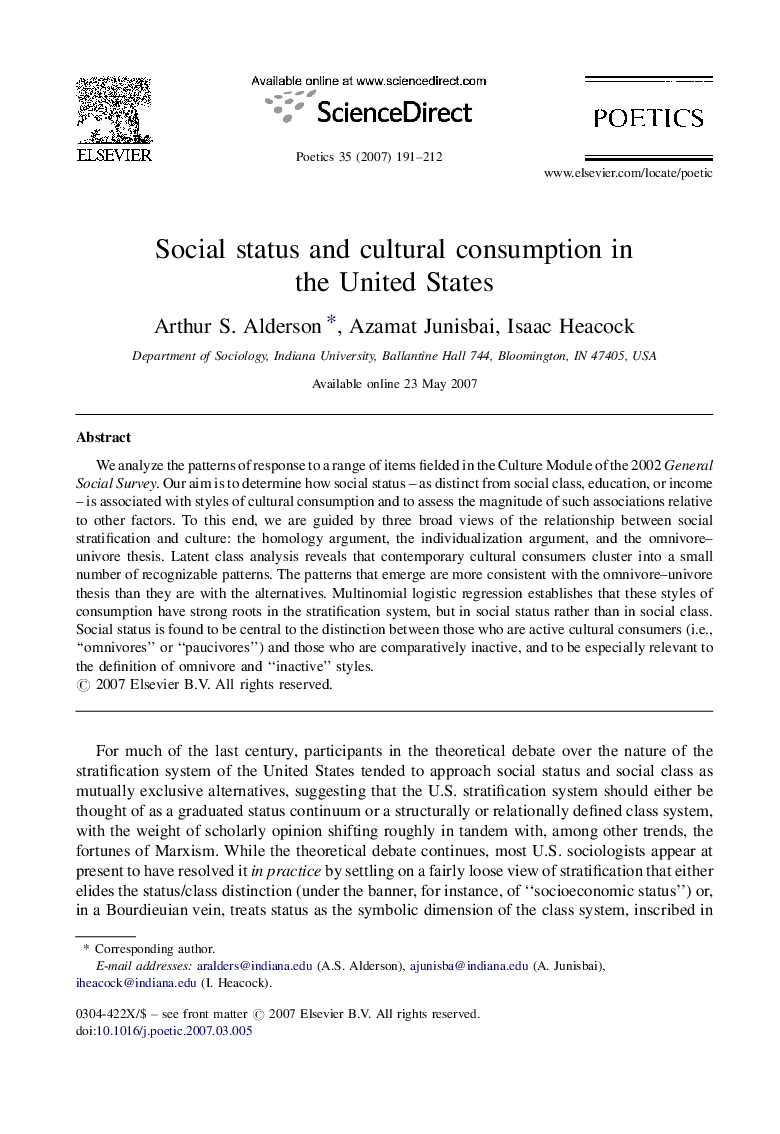| Article ID | Journal | Published Year | Pages | File Type |
|---|---|---|---|---|
| 1128698 | Poetics | 2007 | 22 Pages |
We analyze the patterns of response to a range of items fielded in the Culture Module of the 2002 General Social Survey. Our aim is to determine how social status – as distinct from social class, education, or income – is associated with styles of cultural consumption and to assess the magnitude of such associations relative to other factors. To this end, we are guided by three broad views of the relationship between social stratification and culture: the homology argument, the individualization argument, and the omnivore–univore thesis. Latent class analysis reveals that contemporary cultural consumers cluster into a small number of recognizable patterns. The patterns that emerge are more consistent with the omnivore–univore thesis than they are with the alternatives. Multinomial logistic regression establishes that these styles of consumption have strong roots in the stratification system, but in social status rather than in social class. Social status is found to be central to the distinction between those who are active cultural consumers (i.e., “omnivores” or “paucivores”) and those who are comparatively inactive, and to be especially relevant to the definition of omnivore and “inactive” styles.
